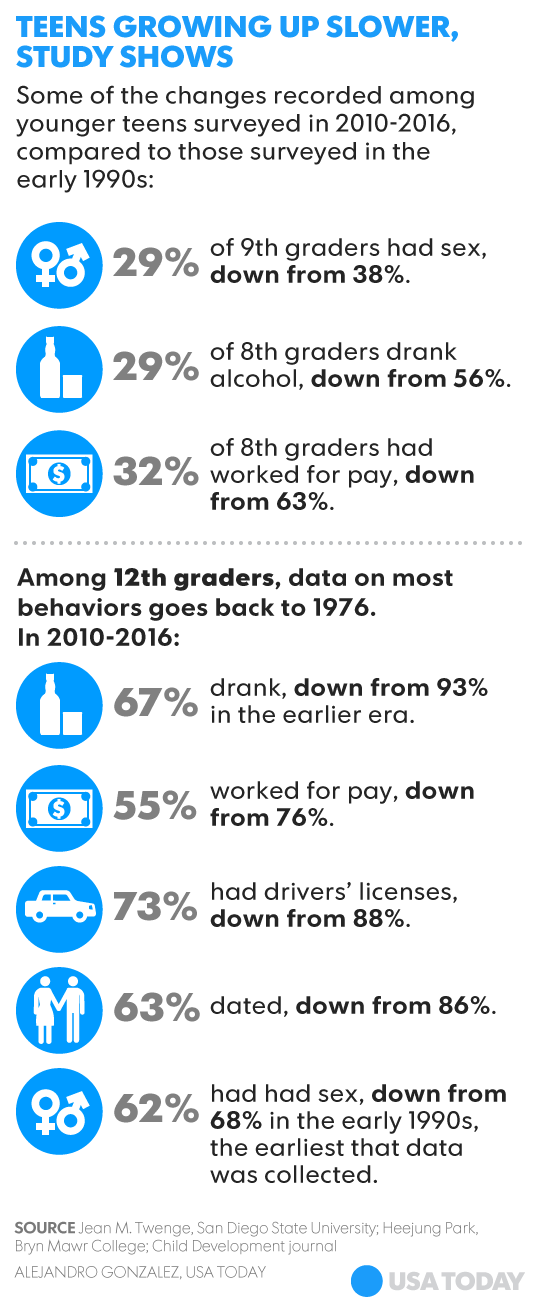 Compared to teens from the 70s, 80s and 90s, today’s teens “are taking longer to engage in both the pleasures and the responsibilities of adulthood,” said Jean Twenge, professor of psychology at San Diego State University and the lead author on a study based on 40 years of survey data published Tuesday in the journal Child Development.
Compared to teens from the 70s, 80s and 90s, today’s teens “are taking longer to engage in both the pleasures and the responsibilities of adulthood,” said Jean Twenge, professor of psychology at San Diego State University and the lead author on a study based on 40 years of survey data published Tuesday in the journal Child Development.
“The whole developmental pathway has slowed down,” she said, with today’s 18-year-olds living more like 15-year-olds once did.
The study relies on seven nationally representative surveys repeated with 8 million teens, ages 13-19, over several decades.
Twenge and her co-author Heejung Park, assistant professor of psychology at Bryn Mawr College, say the trends all point in the same direction – a slowing of teen development that matches a well-documented slowing of young adult development. While people in their early 20s now often act more like teens, young teens often act more like children.
Some of the changes recorded among younger teens surveyed in 2010-2016, compared to those surveyed in the early 1990s:
• 29% had sex, down from 38%.
• 29% drank alcohol, down from 56%.
• 55% worked for pay, down from 76%.
• 73% had drivers’ licenses, down from 88%.
• 63% dated, down from 86%.
The shifts are seen in all economic groups and all parts of the country.
 The lure of the internet – which might keep kids glued to screens instead of out driving and dating – probably has had some recent impact, Twenge said. And more attentive parenting, sometimes derided as “helicopter parenting,” certainly has played a role, she said.
The lure of the internet – which might keep kids glued to screens instead of out driving and dating – probably has had some recent impact, Twenge said. And more attentive parenting, sometimes derided as “helicopter parenting,” certainly has played a role, she said.
Overall, today’s youths seem to be adopting a “slow life strategy” -- the opposite of “live fast and die young” – in a culture in which parents invest more attention in fewer children and life expectancies are longer, Twenge and her co-author conclude.
“There are advantages and disadvantages,” she said. “One of the advantages is that it’s safer.”
One disadvantage is that teens and youths often arrive at colleges and jobs unprepared for independence, Twenge said.
The trade-off between keeping teens safe and encouraging independence and resilience is a constant concern among today's parents, said Susan Borison, editor-in-chief of Your Teen Magazine.
“There’s something remarkably lovely,” about the close relationships many parents and teens now have, thanks in part to the constant connection made possible by technology, Borison said. “But the negative is that we are not letting our kids develop the capacity to problem solve and cope.”